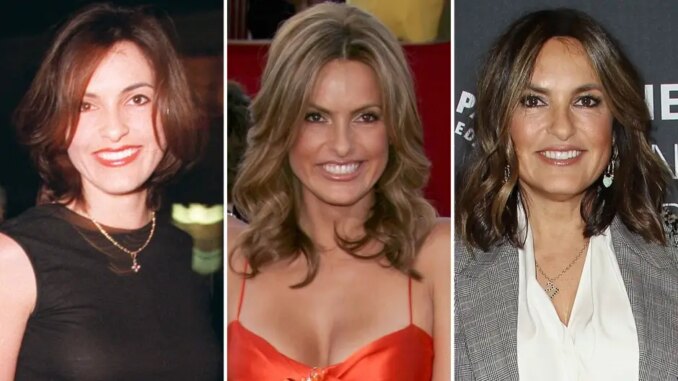
From the Precinct to the Producer's Chair: How Mariska Hargitay Went from TV Icon to Documentary Filmmaker
For over two decades, the name Mariska Hargitay has been synonymous with Olivia Benson, the unflappable, empathetic detective (and later captain) of the Special Victims Unit. She was the steady moral compass in a world of profound darkness, a comforting presence who brought a quiet gravitas to stories of unimaginable trauma. Her face, etched with a blend of steely determination and profound compassion, became an iconic symbol of justice and advocacy on screen. Yet, behind the familiar blue uniform, a quiet revolution was brewing, transforming the beloved TV icon into a powerful, hands-on documentary filmmaker, leveraging her immense platform not just to portray, but to genuinely effect change.
The genesis of this remarkable transition lies deep within the very role that catapulted her to fame. While many actors might leave their characters at the studio door, Olivia Benson began to bleed into Mariska Hargitay’s real life. The sheer volume of letters from survivors, the harrowing statistics, and the raw, unvarnished truths depicted daily on Law & Order: SVU weren't just lines in a script; they were a constant, insistent drumbeat demanding a deeper response. Hargitay found herself increasingly immersed in the real-world issues of sexual assault, domestic violence, and child abuse. The fictional world she inhabited became a stark mirror reflecting an urgent reality, fostering a profound sense of responsibility beyond her acting duties.
This burgeoning awareness first manifested in the creation of the Joyful Heart Foundation in 2004. Initially conceived as a retreat for survivors, it quickly grew into a comprehensive organization dedicated to healing, education, and advocacy. Joyful Heart became a tangible bridge between the fictional traumas of SVU and the very real pain of survivors, offering resources, support, and a loud, clear voice for systemic change. But even as Joyful Heart flourished, Hargitay recognized the limitations of traditional advocacy. There were stories so profound, injustices so staggering, they required a different kind of platform – one that could immerse audiences not just in information, but in visceral experience.
The tipping point arrived with the shocking discovery of the national backlog of untested rape kits. Tens of thousands, hundreds of thousands, of crucial pieces of evidence sat languishing in police storage facilities, denying justice to survivors and allowing perpetrators to remain free. It was an outrage that perfectly encapsulated the systemic failures she’d been confronting for years. This wasn't a problem that could be neatly solved with a press release or a PSA. It needed to be shown. It needed a voice that was undeniable, undeniable proof that survivors were not only brave enough to report but were then re-victimized by a broken system.
Thus began the painstaking journey into documentary filmmaking. As a producer and narrator for I Am Evidence, Hargitay didn't just lend her famous name; she plunged into the heart of the crisis. She traveled the country, interviewing survivors whose cries for justice had been silenced by this bureaucratic nightmare, alongside law enforcement officials wrestling with the immense scale of the problem. Her empathetic gaze, honed by years of portraying a character who listened with unwavering compassion, brought an unparalleled depth to these intimate conversations. She wielded the camera not as a distant observer, but as an extension of her commitment, framing the human cost of negligence with chilling clarity. The film, released in 2017, was a powerful, unflinching testament to a silent epidemic, garnering Peabody and Emmy awards and, more importantly, galvanizing legislative action across the nation, leading to significant policy changes and funding allocations to address the backlog.
Mariska Hargitay’s transition from TV icon to documentary filmmaker is not merely a career pivot; it is a profound redefinition of purpose. She didn’t simply use her fame to raise awareness; she rolled up her sleeves, learned the intricacies of cinematic storytelling, and channeled her innate understanding of trauma and resilience into a new art form. In the producer's chair, she continued Olivia Benson’s legacy, but with the added power of amplifying real voices, influencing real laws, and illuminating hidden truths for a global audience. She proved that an actor’s greatest performance can extend far beyond the script, leaving an indelible mark not just on the fictional world of television, but on the very fabric of justice in the real one.
